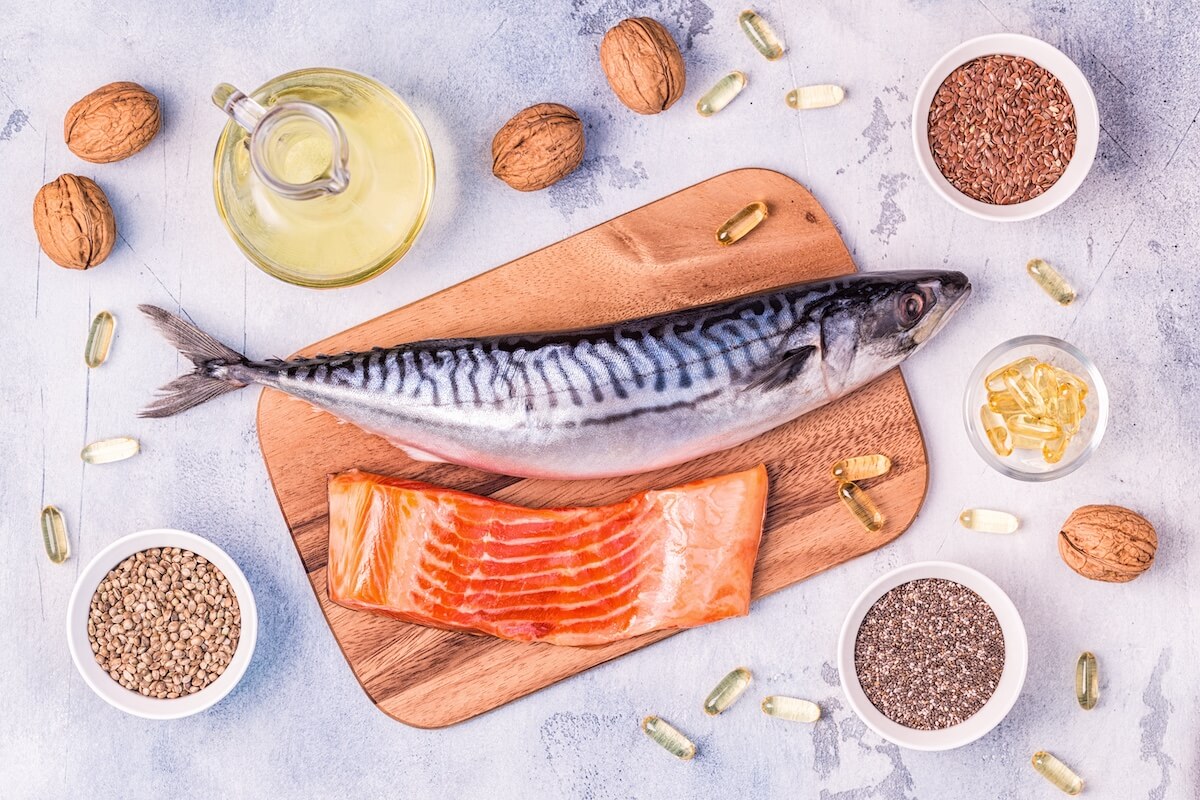Navigating PCOS with a Weight-Neutral Approach

By Rebecca Jaspan, MPH, RD, CDN, CDCES
Edited By Laura Cipullo, RD, CDCED, CEDRD-S
Polycystic Ovarian Syndrome, or PCOS, is an endocrine disorder that occurs in 4%-20% of women of reproductive age1. It is characterized by imbalances in androgens, progesterone, and insulin. Due to these hormonal imbalances, women may experience a wide variety of symptoms including fatigue, hirsutism or unwanted hair growth, hair loss, difficulty losing weight, irregular or painful periods, acne, mood disorders, and diabetes or heart disease. In order to be diagnosed with PCOS, you must meet two out three criteria including presence of ovarian cysts, abnormal or irregular periods, and high levels of androgens detected through blood work2.
When women are first diagnosed with PCOS, many are told to lose weight without any advice or instruction for how to do this. They may also not be given other treatment options beyond weight loss and birth control to regulate their periods. Through early attempts at decreasing calories and increasing exercise, many women may see some temporary improvement in symptoms, but become frustrated at not seeing any movement on the scale.
In PCOS, women experience hyperinsulinemia, an overproduction of the hormone insulin that is used to move sugar from our blood into our cells to be used for energy. This causes insulin resistance and contributes to maintenance of high levels of androgens, inflammation, and metabolic syndrome3. Insulin resistance leads to inaccurate hunger and fullness cues, increased carbohydrate cravings, and an altered metabolism. Consequential restricting of calories and or carbohydrates, in attempt to lose weight can increase these cravings and further affect metabolic function. It is understandable that women diagnosed with PCOS may end up feeling discouraged and confused.
Research shows there is evidence for non-diet strategies for PCOS management, meaning you can still improve your PCOS symptoms without focusing on weight loss. In one study, exercise was associated with reduced insulin resistance independent of weight change4. There is also evidence that shows adhering to a low glycemic-index diet had its greatest improvements on insulin resistance and menstrual irregularity5.
There are several ways to manage PCOS other than losing weight. There are many changes you can make in your diet and lifestyle to improve your symptoms. First, it is important to eat enough calories for a healthy metabolism (known as basal metabolic rate) and eat your meals and snacks evenly throughout the day in a balanced manner. Eating a “consistent carbohydrate diet” helps to maintain blood sugar levels, preventing any major spikes of insulin. Next, you will want to focus on having a balanced plate, or including a protein, carbohydrate, and fat at each meal and two out of the three macronutrients at snack time. Fat and protein help stabilize blood sugars, increase levels of fullness and satisfaction. Finally, choosing high fiber carbohydrates (aka complex carbs), such as beans, whole grains, and vegetables, is helpful for insulin resistance. Fiber helps food digest slower in the body, slowing the release of glucose into the bloodstream. You can absolutely still include refined grains and sugar in your diet but in small amounts throughout the day, rather than all at once. Balance higher fiber foods with refined grains and pairing those foods with a leaner protein and plant fat.
Beyond diet, there are a number of lifestyle factors to consider in managing PCOS. Chronic stress plays a major role in inflammation in the body, increasing cortisol and insulin levels6. Our bodies are meant to withstand temporary amounts of stress, but chronic stress wreaks havoc on our hormones and mental health. If you have PCOS, make sure you find some outlets for that stress- reaching out to a loved one for support, therapy, meditation, or listening to music. Additionally, research shows effectiveness of movement in improving reproductive function, regulating periods, and improving insulin sensitivity in women with PCOS7. Incorporating movement such as walking, yoga, biking, or light strength training can be helpful for improving symptoms.
If you have PCOS, be sure to talk to a dietitian on our team at Laura Cipullo Whole Nutrition. We take a holistic approach to provide specific recommendations for your lifestyle so you can feel confident managing your symptoms. We encourage you to focus on your health rather than weight.
References
- Deswal R, Narwal V, Dang A, Pundir CS. The Prevalence of Polycystic Ovary Syndrome: A Brief Systematic Review. J Hum Reprod Sci. 2020;13(4):261-271. doi:10.4103/jhrs.JHRS_95_18
- https://www.hopkinsmedicine.org/health/conditions-and-diseases/polycystic-ovary-syndrome-pcos
- Marshall JC, Dunaif A. Should all women with PCOS be treated for insulin resistance?. Fertil Steril. 2012;97(1):18-22. doi:10.1016/j.fertnstert.2011.11.036
- Woodward A, Klonizakis M, Broom D. Exercise and Polycystic Ovary Syndrome. Adv Exp Med Biol. 2020;1228:123-136. doi:10.1007/978-981-15-1792-1_8
- Hutchison SK, Stepto NK, Harrison CL, Moran LJ, Strauss BJ, Teede HJ. Effects of exercise on insulin resistance and body composition in overweight and obese women with and without polycystic ovary syndrome. J Clin Endocrinol Metab. 2011;96(1):E48-E56. doi:10.1210/jc.2010-0828
- https://www.sciencedaily.com/releases/2012/04/120402162546.htm
- Marsh KA, Steinbeck KS, Atkinson FS, Petocz P, Brand-Miller JC. Effect of a low glycemic index compared with a conventional healthy diet on polycystic ovary syndrome. Am J Clin Nutr. 2010;92(1):83-92. doi:10.3945/ajcn.2010.29261







